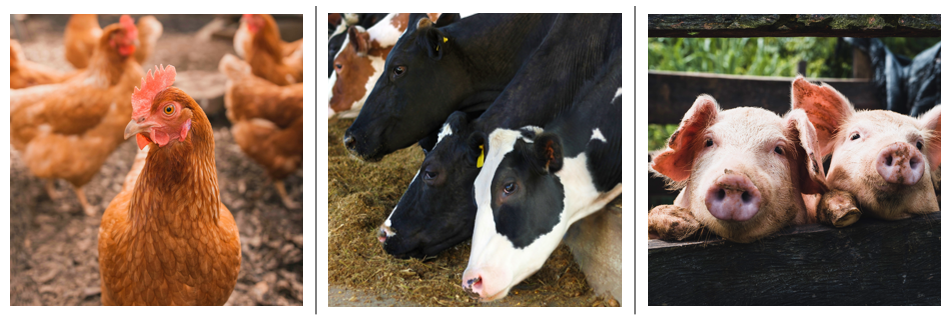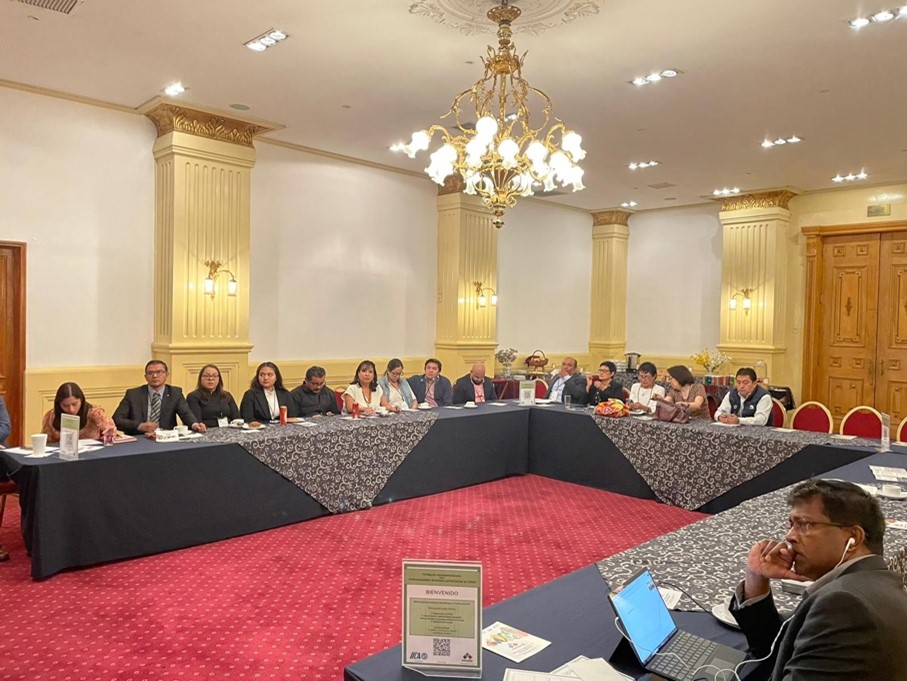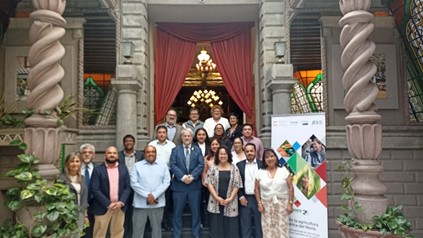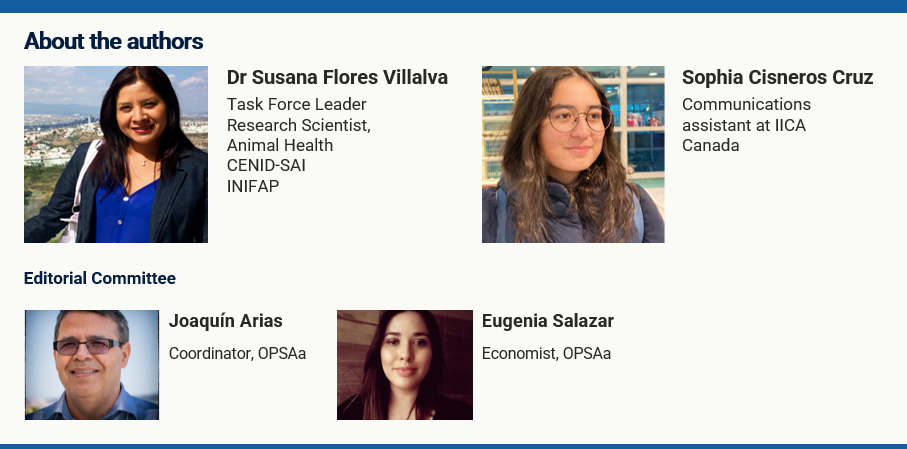
Since 1998, IICA’s Cooperative Program in Research and Technology for the Northern Region (PROCINORTE), supported by a trilateral network of federal agricultural, agri-food, and food system research bodies in Canada, Mexico, and the USA, has driven scientific collaborations, exchanges and partnerships in the Northern Region of the Americas, by incorporating science, technology, innovation, and knowledge-sharing in areas of trilateral relevance.
Last June, jointly with its Animal Health Task Force, PROCINORTE hosted a three-day hybrid workshop on priority animal diseases in Mexico City. The workshop featured presentations by dozens of scientists and experts from the Americas who discussed zoonotic and emerging influenza viruses, as well as African swine fever, and bovine tuberculosis. The workshop attracted tremendous international interest, attended by 650 participants, both online and in person, from twenty-five different countries, a strong indicator that Animal Health is a global concern.
|
“Animal Health is a global concern, as animal diseases have impacts on the economy, trade, public health, and food security” |
Day 1 - Let's Talk About Emerging and Zoonotic Influenza Viruses
The workshop discussions began around emerging and zoonotic influenza viruses, providing an update on the current situation in Mexico and other countries, vaccination strategies, genomic surveillance, and the impact of HPAI (H5N1) on U.S. dairy cattle.
The experts emphasized the need to develop vaccines for different animal species, to understand the genetic factors that influence virus transmission and to improve communication between the animal and public health sectors.
|
|
The Emerging and Zoonotic Influenza Viruses - Watch the Full Webinar Day 1 here: Español: https://www.youtube.com/watch?v=fuBNm1v6VdA English Part 1: https://www.youtube.com/watch?v=zhS2f2MPVns |
Day 2 - African Swine Fever (ASF)
The second day addressed African swine fever (ASF), with discussions on the ASF situation in the Dominican Republic, preventive actions in countries free of the disease, and advances in diagnostic and vaccination strategies.
Researchers highlighted the need to improve diagnostic methods, understand ASF in wild pigs and assess the socioeconomic impact of the disease on communities and value chains. Close and continuous cross-sector collaboration was identified as essential for reducing risks and preventing the spread of ASF.
|
|
African Swine Fever - Watch the Full Webinar Day 2 here: Español: https://www.youtube.com/watch?v=-a_17xPG9Hg English Part 1: https://www.youtube.com/watch?v=n2o-VWjxt-8 |
Day 3 - Bovine Tuberculosis (BT)
On the last day of the workshop, the focus was on bovine tuberculosis (BT), an important disease that affects both domestic and wild animals.
The current situation in Mexico, changes in the national eradication program, current diagnostic solutions and vaccination strategies for wildlife and cattle were discussed. It was emphasized the importance of researching strategies to eliminate BT in dairy herds, as well as the need to generate a deeper understanding of the pathogenesis and epidemiology of BT, and to strengthen collaboration between sectors to effectively deal with zoonotic and BT.
|
|
Bovine Tuberculosis - Watch the Full Webinar Day 3 here: |
International collaboration is crucial to reaching the goal of One Health
The meeting underlined the importance of developing better vaccines and improving knowledge of the disease, but also emphasized the importance of international and cross-sectoral collaborations to achieve effective disease control and management strategies: collaborative work from different sectors is needed to achieve a common approach, including through a One Health lens.
The workshop served as an opportunity to share information among different experts and to deepen the discussion. Support between countries and partners is always a key factor in moving towards a scenario where we can better prevent animal diseases and ensure food safety and the economy.
|
“We agree that it’s necessary to have multidisciplinary team to be able to fight all these illnesses” said Animal Health Task Force Leader Dr Flores Villalva. |

Specialist from Canada, the United States and Mexico during the in-person session
For many, the losses of their livestock are a threat to their own livelihood impacting directly on their business. On a larger scale, animal diseases can lead to widespread food shortages and threaten the food security of affected countries. Moreover, animal diseases are also linked to human well-being as there is an interdependent connection between people’s health, animals’ health, and the environment. Therefore, to prevent and eradicate emerging diseases international collaboration between the scientific, government, farmers, and private sector is crucial to reaching the goal of One Health.
|
“PROCINORTE’s Animal Health Task Force strives to bring together a broad range of government and academic scientists to foster knowledge exchanges while securing resources to support scientific research collaborations in 10 countries on classical and African swine fever” said INIFAP’s Dr Flores Villalva. |
And PROCINORTE will continue to do so in the future. The workshop concluded in the importance of international collaboration and invited partners to reach out to PROCINORTE to further advance regional and hemispheric animal and one health dialogues, science, and technology. PROCINORTE will continue to engage in finding competitive and sustainable ways to improve agriculture development through the exchange of information incorporating science, technology, and innovation across the Americas.

Participants of the second Day of the workshop

More about IICA-Canada
Follow us on X: https://x.com/iica_canada
More about PROCINORTE
Visit our website: https://www.procinorte.net/
Follow us on X: https://x.com/procinorte
The opinions expressed in this blog are those of the authors. They do not purport to reflect the opinions or views of the IICA or its members.
Añadir nuevo comentario